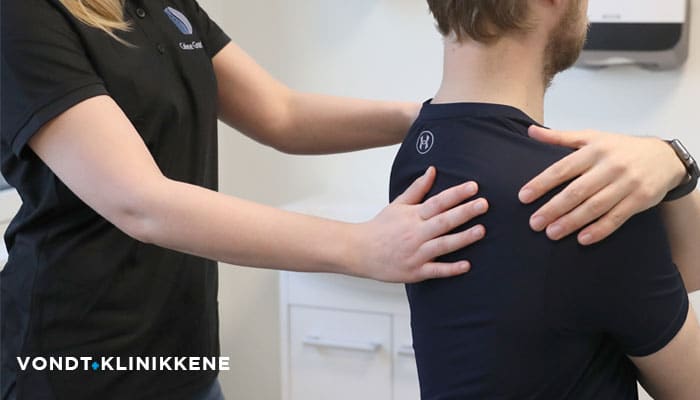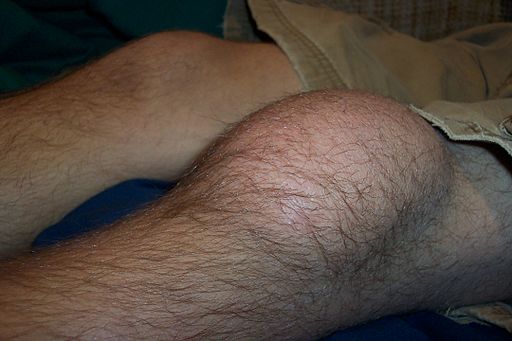
Pes anserine bursitis (mucosal inflammation on inside knee)
Mucositis inside the knee, also known as pes hellerine bursitis, is a condition that can cause pain, reddish swelling and inflammation of the medial aspect of the knee.
Pes considered bursitis can occur after a single trauma (fall or accident) or repeated microtraumas (such as prolonged exertion). Mucositis on the inside of the knee can also occur from something as simple as standing on your knees for large parts of the day on hard surfaces.
The Pain Clinics: Our Interdisciplinary and Modern Clinics
Our clinic departments at Vondtklinikkene (click here for a complete overview of our clinics) has a distinctively high level of professional expertise in the investigation, treatment and rehabilitation of knee diagnoses. Contact us if you want the help of therapists with expertise in knee pain.
- Is exposed to
The position of the ground mucus bag is exposed to trauma or frictional injuries. As you can see in the picture below, it lies on the inside of the knee - named pes consideredine bursa.
Note: A differential diagnosis of pes hellerine bursitis is prepatellar bursitis or infrapatellar bursitis. They can cause very similar symptoms.
Relief and load management in the case of inflammation of the bursa in the knee
A bursitis needs relief and rest. We therefore recommend increased support and shock absorption by using, for example, a knee compression support. This also contributes to increased blood circulation and fluid drainage in the area - which can help reduce swelling in the knee.
Tips: Knee compression support (The link opens in a new window)
Click on the image or link to read more about the knee compression support and how it can help your knee.
What is a slimy bag / bursa?
A bursa is a fluid-filled 'mucus bag' found in various parts of the body. These mucous bags are designed to reduce friction between different layers of tissue – thus they are typically located in areas that may be exposed to such frictional damage.
Pes consider bursitis symptoms
The area can become hot, painful and red in the skin - a clear swelling will usually also be present. In other words, it will feel like inflammation in the knee, and the pain is in most cases also present at night. In certain cases (for example if there is no treatment) the inflammation can become septic, and is then called septic pes anserine bursitis.
This picture shows prepatellar bursitis - which can be misinterpreted as pes considered bursitis and vice versa.
Pes considered bursitis treatment
- Get diagnosed with your doctor.
- NSAIDS and anti-inflammatory drugs.
- Rest. Avoid suspicious causes.
- Knee support and possibly sports tape or kinesio tape to prevent further irritation.
- If there is no improvement, consult a doctor or emergency room.
What can I do even for muscle and joint pain?
1. General exercise, specific exercise, stretching and activity are recommended, but stay within the pain limit. Two walks a day of 20-40 minutes make good for the whole body and sore muscles.
2. Trigger point / massage balls we strongly recommend - they come in different sizes so you can hit well even on all parts of the body. There is no better self help than this! We recommend the following (click the image below) - which is a complete set of 5 trigger point / massage balls in different sizes:
3. Training: Specific training with training tricks of various opponents (such as this complete set of 6 knits of different resistance) can help you train strength and function. Knit training often involves more specific training, which in turn can lead to more effective injury prevention and pain reduction.
4. Pain Relief - Cooling: Biofreeze is a natural product that can relieve pain by cooling the area gently. Cooling is especially recommended when the pain is very severe. When they have calmed down then heat treatment is recommended - it is therefore advisable to have both cooling and heating available.
5. Pain Relief - Heating: Warming up tight muscles can increase blood circulation and reduce pain. We recommend the following reusable hot / cold gasket (click here to read more about it) - which can be used both for cooling (can be frozen) and for heating (can be heated in the microwave).
 Follow Vondt.net on YOUTUBE
Follow Vondt.net on YOUTUBE
(Follow and comment if you want us to make a video with specific exercises or elaborations for exactly YOUR issues)
 Follow Vondt.net on FACEBOOK
Follow Vondt.net on FACEBOOK
(We try to respond to all messages and questions within 24-48 hours. We can also help you interpret MRI responses and the like.)








Leave a reply
Want to join the discussion?Feel free to Contribute!